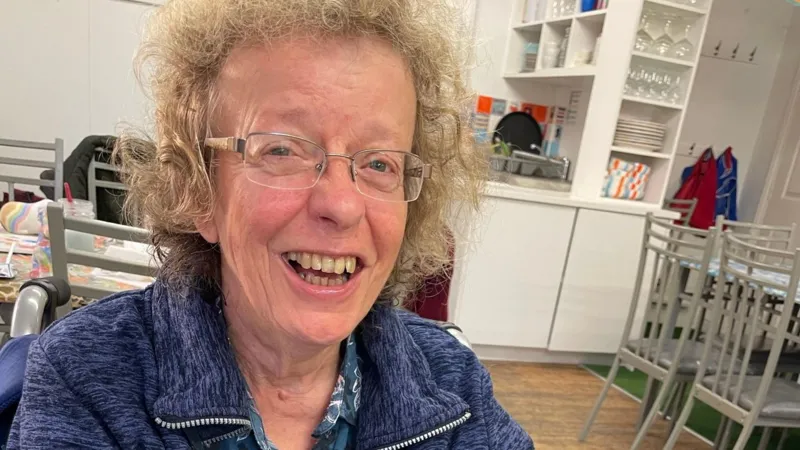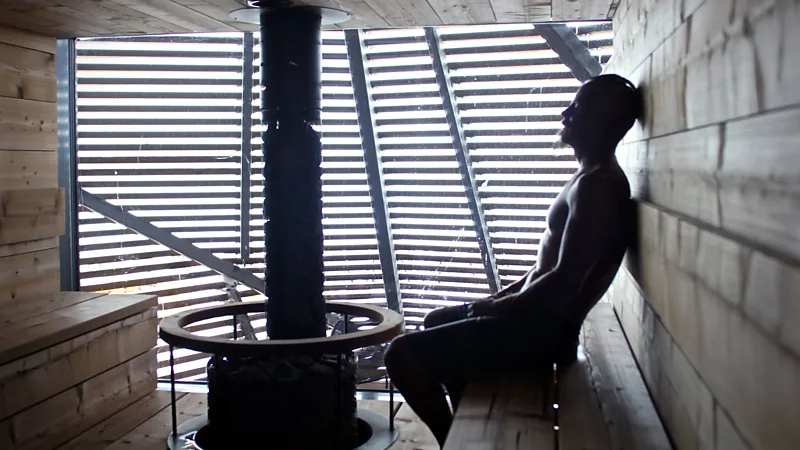Assisted Dying: Family shares experience of Dignitas
Two daughters have said watching their mother go through the process of assisted dying was "one of the hardest things they've had to do".

Catie and Becky from Berkshire said their mum Alison was diagnosed with Motor neurone disease (MND) in June 2022.
Alison, 69, then informed her family in the September that she wanted to go to Dignitas, Switzerland, as she "did not want to see the disease through to the end".
Laws throughout the UK prevent people from asking for medical help to die but in Switzerland it has been decriminalised.
Alison's daughter Catie said her mum was "active" before the diagnosis and did not want to be "confined to a bed"
MND is a life-altering, terminal condition that affects people's ability to move, talk and breathe.
Alison's daughters, who asked the BBC to only use their first names, said she was "active" before the diagnosis and told them she did not want to be "connected to tubes and confined to a bed".
Catie said: "Mum was a strong, brave, independent woman and exceptional mother."
She said Alison was "so family-orientated, everything she did was for us" but the final decision was "chosen for her, it was the best way out, for her".
Her daughters said she was also an "amazing singer and musician"
Assisted dying is used to describe a situation where someone who is terminally ill seeks medical help to obtain lethal drugs which they administer themselves.
Both daughters said it was "impossible to say goodbye" when their mother left for Switzerland.
They said watching her leave in a taxi to go to the airport was the "worst day of their lives".
Becky said: "After mum and dad left, we collapsed into each other and could barely move, knowing we would never physically see mum again."
Their final goodbye was over FaceTime, which her daughters described as "painful".
Both received a message on the morning she passed away, letting them know their mother was gone.
Family handout Alison on a walking trail with her back to the camera she is wearing a red backpackFamily handout
Alison's daughters now want to see a change in the law
Assisted dying is illegal in the UK but recently, Scotland, Jersey and the Isle of Man all announced they are considering changing the law to let terminally ill people end their lives.
Critics have said changing the law would "place pressure on vulnerable people to end their lives", for fear of being a financial or emotional burden.
Dr Gordon Macdonald, of anti-assisted dying campaign group Care Not Killing, says there are "many problems" with changing the law.
He also fears that criteria for assisted dying could, in time, be extended beyond terminally ill people to include those with disabilities and conditions such as dementia and depression.
The Prime Minister, Kier Starmer, recently said he would provide parliamentary time for a vote if a backbench MP proposed changing the law but declined to put a timetable on it.
UK membership of Dignitas jumped to 1,900 people in 2023, according to the organisation. That is a 24% rise on the previous year.
It said 40 people from the UK ended their lives at Dignitas in 2023, the highest level since 2019.
Catie and Becky are sharing their story in the hope it might help others. They want to see the law changed and for assisted dying facilities to be built in the UK.
They said: "We want people who are terminally ill and maintain mental competency, like mum, to have the right to end their own life."
-bbc






